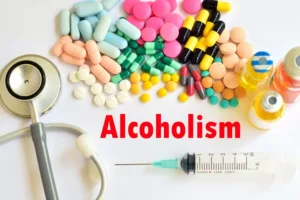
Even if they decide not to drink because of something important, they frequently do it anyway. While alcohol abusers drink irresponsibly, they usually can avoid drinking because they need to be sober for a specific reason or situation. The terms sound synonymous, but they actually have different meanings. More resources for a variety of healthcare professionals can be found in the Additional Links for Patient Care.

Alcohol Withdrawal

Contributors to this article for the NIAAA Core Resource on Alcohol include the writers for the full article, content contributors to subsections, reviewers, and editorial staff. These contributors included both experts external to NIAAA as well as NIAAA staff. Research has shown that the terminology used does, in fact, influence how people with a substance use disorder view themselves as well as how others view them. People who have a dependence on alcohol exhibit some or all of the following characteristics. Males, college students, and people going through serious life events or trauma are more likely to experience AUD. As you recover from AUD, you may find it helpful to see a psychotherapist who uses cognitive behavioral therapy (CBT) techniques.
Treatment Options for Alcohol Abuse and Alcoholism
Understanding the effects of alcohol abuse versus alcoholism is crucial in recognizing the severity and implications of each condition. Alcohol abuse, often considered a precursor to alcoholism, can lead to significant negative consequences in an individual’s distinguish between alcohol abuse and alcoholism life without the presence of physical dependence. These may include drinking in higher amounts or for longer periods than intended, unsuccessful attempts to control consumption, and continued drinking despite social, legal, or health problems.
Take The First Step to a New Life
- Abusing alcohol, however, doesn’t mean you’re addicted to or dependent on it.
- For many years, drinking too much was blamed on a character flaw or not having enough willpower.
- For those with severe alcohol use disorder, residential treatment programs offer an immersive environment with access to medical and psychological support.
- Understanding the distinction between alcohol abuse and alcoholism is crucial for identifying the severity of an individual’s alcohol-related issues.
While these programs do not label anyone as an alcoholic, they outline the characteristics of alcoholism and allow people to make that decision for themselves. If a person has mild abuse issues, they may be able to join a support group, such as Alcoholics Anonymous (AA). They may need accountability to reduce drinking and avoid developing an AUD. A person with alcoholism may spend a lot of time thinking about drinking or how to hide their drinking. They may not feel comfortable at social events if alcohol is not available. Alcohol misuse or abuse can lead to alcohol use disorder, a condition difficult to overcome without proper help, support, and treatment.
- Despite its chronic nature, AUD can go into remission with appropriate treatment, which may include behavioral therapies, medications, and support groups.
- While alcohol abusers drink irresponsibly, they usually can avoid drinking because they need to be sober for a specific reason or situation.
- Alcohol abuse, as delineated by the National Institute on Alcohol Abuse and Alcoholism (NIAAA), refers to a pattern of drinking that results in significant and recurrent adverse consequences.
- It encompasses the conditions that some people refer to as alcohol abuse, alcohol dependence, alcohol addiction, and the colloquial term, alcoholism.
- Alcohol use disorder can include periods of being drunk (alcohol intoxication) and symptoms of withdrawal.
Alcoholism is a term used to describe an individual who suffers from severe alcohol dependence. The term “alcoholism” is used interchangeably with alcohol addiction. While the CDC reports that 90% of people who abuse alcohol don’t fit the criteria for alcoholism, it’s still a serious concern in the United States. Ten percent of Americans who drink excessively are classified as alcoholics, according to Reuters.
Alcohol abusers sometimes benefit from less-intensive treatments such as behavioral therapy and counseling. If you’re diagnosed with alcoholism, you’ll most likely start treatment with medical detox. Alcohol abuse treatment can differ from alcoholism treatment because of differences in severity. Abusing alcohol, however, doesn’t mean you’re addicted to or dependent on it. Use of this website and any information contained herein is governed by the Healthgrades User Agreement. If you or someone you know is exhibiting these signs, it is important to seek professional help to address the underlying issues and begin the journey towards recovery.

Understanding Alcoholism and Alcohol Abuse
It’s a list of questions about your drinking habits, and how alcohol use affects your daily life and relationships. Your answers can help a doctor understand if you have AUD, and whether it’s mild, moderate, or severe. If you have it, you regularly drink heavy amounts of alcohol despite its negative effect on your life, health, and the people around you. You can determine the differences between alcohol abuse and alcoholism based on the symptoms, extent of use, and the necessary treatment approach.
Medical Professionals
- For instance, both may involve neglecting responsibilities, experiencing relationship difficulties, and continuing to drink despite negative consequences.
- Essentially, alcoholism is the point at which alcohol abuse becomes alcohol addiction.
If you or someone you know is dealing with these challenging issues, professional help is key. Vanguard Behavioral Health provides comprehensive services that cater to those in need of support on the path to sobriety. Understanding how does alcohol abuse differ from alcoholism also necessitates exploring their impacts on health. Both alcohol abuse and alcoholism can lead to alarming health issues such as liver diseases, cardiovascular problems, and mental health disorders. The Centers for Disease Control and Prevention (CDC) warns that long-term alcohol misuse can lead to chronic diseases and other serious health outcomes (Centers for Disease Control and Prevention, 2020).

